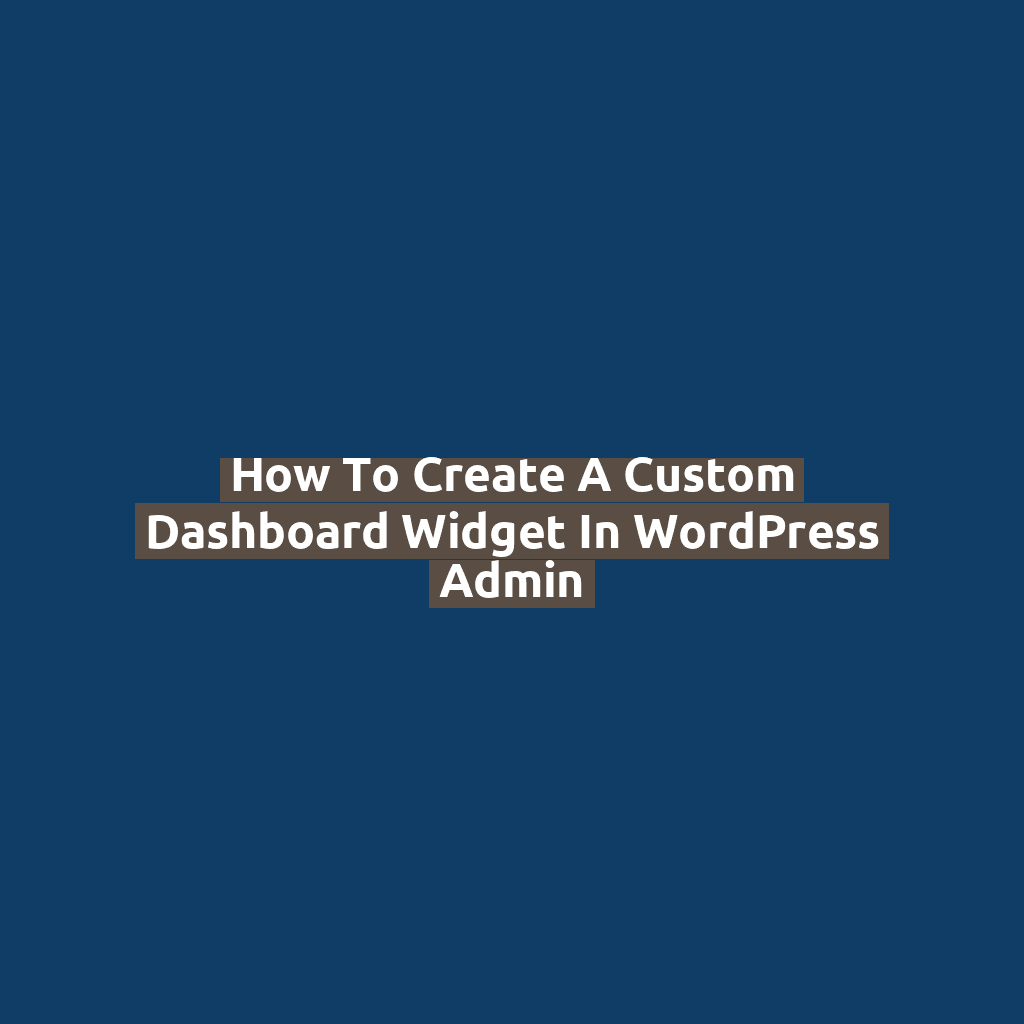How to Create a Custom Dashboard Widget in WordPress Admin

What Is a Dashboard Widget?
When you log into WordPress, the first screen you see is the Dashboard — it includes widgets like “At a Glance” or “Quick Draft.” But did you know you can add your own custom widgets to this area?
This is great for:
- Leaving welcome messages or instructions for clients
- Showing custom stats or tips
- Creating admin shortcuts
Step 1: Hook into wp_dashboard_setup
Paste the following into your theme’s functions.php file (or a custom plugin):
function my_custom_dashboard_widget() {
wp_add_dashboard_widget(
'custom_dashboard_widget', // Widget slug
'📌 Welcome to Your Dashboard', // Title
'custom_dashboard_widget_content' // Callback function
);
}
add_action('wp_dashboard_setup', 'my_custom_dashboard_widget');
Step 2: Add Widget Content
Now define the function that outputs the content:
function custom_dashboard_widget_content() {
echo '<p>Hi there! Here are a few quick links to get started:</p>';
echo '<ul>
<li><a href="' . admin_url('post-new.php') . '">Add New Post</a></li>
<li><a href="' . admin_url('customize.php') . '">Customize Your Site</a></li>
<li><a href="' . admin_url('plugins.php') . '">Manage Plugins</a></li>
</ul>';
}
📌 Tip: You can replace this content with anything — client instructions, video embeds, contact buttons, etc.
Optional: Restrict Widget to Specific User Roles
Want to show it only to admins? Wrap your output in a condition:
function custom_dashboard_widget_content() {
if (current_user_can('administrator')) {
echo '<p>Admin-only dashboard note here.</p>';
}
}
Styling the Widget (Optional)
To style your dashboard widget, enqueue an admin stylesheet:
function custom_admin_styles() {
echo '<style>
#custom_dashboard_widget ul li {
margin-bottom: 5px;
}
#custom_dashboard_widget h2 {
font-size: 16px;
}
</style>';
}
add_action('admin_head', 'custom_admin_styles');
Conclusion
Adding a custom dashboard widget is a simple way to personalize the WordPress admin area — especially useful for client sites, multi-author blogs, or your own workflow.
With just a few lines of code, you can provide shortcuts, display messages, or even integrate analytics widgets right into the admin dashboard.